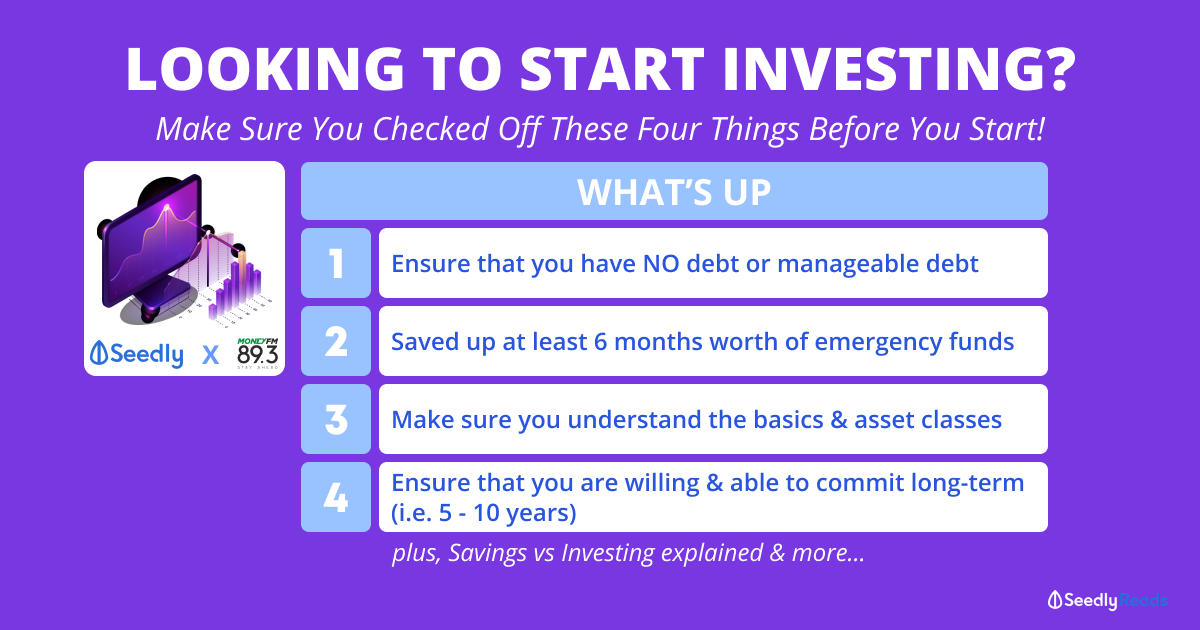Advertisement
Anonymous
Is Stashaway a good app to invest in for beginners? Am gonna start soon and was wondering if it's the right choice?
Any tips/suggestions for a newbie investing in Stashaway? I am about to invest in Stashaway for the first time and would like to learn from the community any tips/suggestions/advise when it comes to investing with them. Is it recommended? Or are there any other options?
11
Post Merged
This post is no longer accepting new comments because it has been merged with Is StashAway a good app for beginners new to investment?
Discussion (11)
Luke Ho
Edited 26 Apr 2022
Founder and Director at CFX Money Maverick Pte Ltd
Reply
Save
If you want a hand-off approach towards investing, Stashaway is alright. But so is many other robo-advisors. Hard to tell difference between them. Main differentiator between the different robo-advisory are the engine that determine the asset allocation as well as fund selection.
The engine is based off a finanical model that takes in economic data.
The good thing about robo-advisors is they are mostly investing in low-cost broadly diversifed ETFs from big name issuers such as Vanguard and Blackrock. And they are mostly investing passive products. Even then, most charge on average about 0.70% pa, excluding the fund expense ratio. All in cost, I suspect comes in at about 0.9%-1% pa.
Strange thing about Singapore is that passive product does not seems to have the same amount of traction as compared to US. Maybe it is the lack of education or could just be the way the advsiory business is being set up in Singpaore. My main concern with active funds is that although the market has been doing pretty well for the past decade, most active funds across asset classes (in US context, doubt the stats will change much for any active funds anywhere else in the world) are underperforming the benchmark.
Note that most active managers collect their fees regardless of the underlying fund performance. The probability of you choosing an advisor that can construct a portfolio that generate consistent alpha in the long run is close to NONE, which is as good as the probability of a fund manager selecting winning stocks in the long run.
Google "SPIVA report". Some argue active management would have better results in bear market. Once again, the SPIVA report would beg to differ. Perhaps the only good thing about having an advisor is that they can help calm your nerves in a market crash. Go get a dog for that. (apologies for my humor)
Would recommend you read the following books :
- The little book of common sense investing
- The Intelligent investor
- A random walk down wall street
Lastly, do your own due diligence.
Reply
Save
Hariz Arthur Maloy
01 Aug 2019
Independent Financial Advisor at Promiseland Independent
Nothing about the platform, but instead, are you ready to start investing?
My main concern with ma...
Read 4 other comments with a Seedly account
You will also enjoy exclusive benefits and get access to members only features.
Sign up or login with an email here
Write your thoughts
Related Articles
Related Posts
Related Products

StashAway
4.7
1295 Reviews
StashAway Simple Guaranteed 3.55% p.a. (Guaranteed rate)
Cash Management
INSTRUMENTS
None
ANNUAL MANAGEMENT FEE
None
MINIMUM INVESTMENT
3.5%
EXPECTED ANNUAL RETURN
Mobile App
PLATFORMS

Endowus
4.7
658 Reviews

Syfe
4.6
934 Reviews
Related Posts
Advertisement










There's a ton of other options, because if you're looking at long term results across a portfolio that is going for 20 years or longer, many things beat Stashaway. The SNP500 alone.
QQQ Index.
Emerging Market Index. Or if you wanted significantly higher alpha, active funds that outperform the strongest index in the world by 4 percentage points net of fees.
Some people would take two approaches to Robos
1) Trading regularly
2) 5 - 10 year approach, which is optimal because you get a very sweet risk-adjusted return. At some point in 2018, it's risk-adjusted return was so much better that I had to refer a client to it compared to my own product. So I don't look down on it, but I'm doubtful whether it's the best instrument for your situation.
If you insist on looking at Robos or ETFs that it comes with, I'd still go with Stash compared to the SNP500 immediately - because I've written extensively on it and you can see that it has drops as high as 89%. Yes. I'm not kidding. So it can be a bit hard for a newbie to stomach if it happens to you immediately, compared to the asset allocation that Stash will do for you. I also think that Stashaway, although it may not be as fee friendly as say, Autowealth - is better. The CIO just seems like quite a visionary. But please, don't take any of this as formal advice. Do get it from a professional. That's what it always boils down to anyway - because no one who's giving you advice here will take responsibility for what happens except a professional. https://www.facebook.com/luke.ho.54